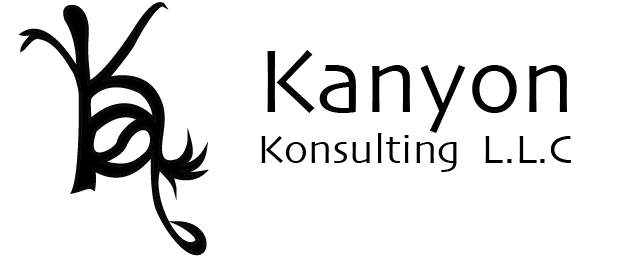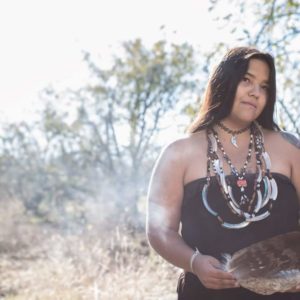Kanyon Konsulting’s mission is to bridge the gap between indigenous and contemporary value systems. Located in Ohlone (Commonly known as the SF Bay Area) Territory, Kanyon Konsulting offers its expertise in working with indigenous peoples to provide a platform to inject an indigenous perspective into our western midsets.
Our work focuses on offering Indigenous perspectives on the importance of indigenous protocol, acknowledging the land we now occupy, land stewardship and ecology. Our approach is grounded in over 30 years cumulative experience in the belief that by applying indigenous perspectives we can find solutions to today’s problems.
We humbly educate our clients to understand indigenous sociocultural and economic fire-adaptive strategies and its relation to climate change.
#KKLLC
#KanyonKonsulting
Solidarity
I wanted to extend my appreciation for your efforts to better stand in solidarity with indigenous peoples. As you may know, I recently co-founded a consultation company to help facilitate those efforts to bridge the gap between indigenous and contemporary value systems. We have facilitated many workshops and training’s around honest Ohlone history and personal knowledge of Ohlone culture today.
Some of the topics we cover include;
- Indigenous insights and cultural competency and sensitivity
- Core Equity Indigenous Concepts
- NAGPRA/CEQA/AB52 – consultation and training
- Perspectives training as related to climate change themes for Climate Change including
- How to support those disproportionately affected by generations of cultural warfare, colonialism, etc.
- Indigenous land management and fire management
- Teachers training for formal and informal teachers
- Curriculum Consultations
- Classroom presentations
- Land acknowledgements and an introduction to indigenous protocol.
- Culture sharing opportunities
- Decolonization workshops
Kanyon Konsulting LLC specializes in showing our clients that through honoring truth in history we can bridge the gap between indigenous and contemporary value systems. Our training sessions are designed in a manner to allow teams a platform to inject indigenous perspectives at three related levels: the workplace context, interpersonal interactions and individual behaviors. These targeted shifts in perspective garner big returns in terms of an individuals intrinsic satisfaction and productivity.
#LandAcknowledgements
Thank you for reaching out to us and requesting this information, we appreciate your efforts to stand in solidarity with the indigenous community of Ohlone territory.
When considering a land acknowledgement the first option should always be to have an indigenous person from that area do the acknowledgement. If that is not possible than the next step, which is what you were doing, is to reach out to the indigenous community to get permission and receive instruction. The acknowledgment process is about asking, What does it mean to live in a post-colonial world? What did it take for us to get here? And how can we be accountable to our part in history?
The purpose of these statements is to show respect for indigenous peoples and recognize their enduring relationship to the land. Practicing acknowledgment can also raise awareness about histories that are often suppressed or forgotten.
We benefit so much from the land we live on! When we benefit and gain things, it is important to also offer and give. With acknowledgment, you’re giving your time and your energy to seek out more information, to learn. Acknowledgment by itself is a small gesture. It becomes meaningful when coupled with authentic relationship and informed action.
The most basic forms of acknowledgment we recommend are very simple, for instance (in San Francisco): “I would like to acknowledge that this meeting is being held on the traditional lands of the Ramaytush People in Yelamu, and pay my respect to elders both past and present.”
A more comprehensive version: ” I would like to acknowledge that this meeting is being held on the traditional lands of the Ramaytush People in Yelamu, and pay my respect to elders both past and present.” To acknowledge that not only are we on their lands but that they are still here, part of the community. And take active steps in becoming aware of the history of the people and land that you are present with. Make an effort to Restore Right Relationship with ways to #HonorTruthInHistory and be in community with Indigenous peoples and original stewards of the land
Please remember that this needs to be practiced wherever we go. On who’s ever land we travel to, the following steps should be taken:
1. Identify.
“The first step is identifying the traditional inhabitants of the lands you’re on. This task may be complicated by multiple and contested histories . . . So it is important to proceed with care, doing good research before making statements of acknowledgment.”
2. Articulate.
“Once you’ve identified the group(s) who should be recognized, formulate the statement. There is no exact script . . . Beginning with just a simple sentence would be a meaningful intervention in most U.S. spaces . . . Often, statements specifically honor elders . . . Acknowledgments may also make explicit mention of the occupied, unceeded nature of the territory.”
3. Deliver.
“Offer your acknowledgment as the first element of a welcome to the next public gathering or event that you host. If . . . you’ve built relationships with members of Native communities, consider inviting them to give a welcome before yours . . . Acknowledgment should be approached not 0 a set of obligatory words to rush through . . . Consider your own place in the story of colonization and of undoing its legacy.”


